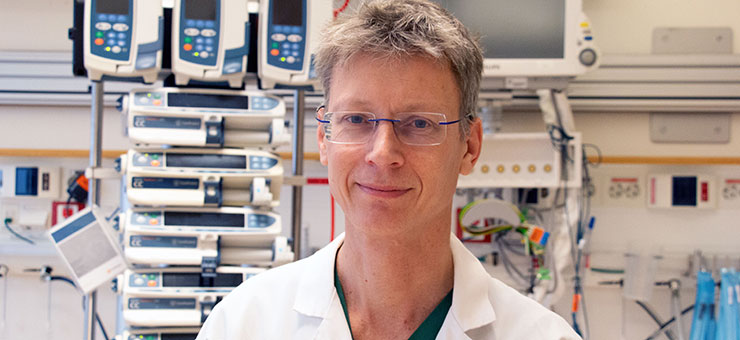Large grant for research on transportation and storage of donated hearts

The method means that the donated heart is placed in a custom-built box where the heart, with the help of a machine, is supplied with important substances in an oxygenated blood-mixed solution before the transplant. In this way, the storage time of the donated heart is expected to be extended — from today's approximately four hours to at least twelve hours.
Eleven transplants so far
The first heart transplant with this new method was performed at Skåne University Hospital in September 2017. So far, the box has been used for eleven transplants at the hospital.
“So far we have not seen anything that makes us say that this method would be inferior to the traditional one, rather the opposite”, says Johan Nilsson.
Patients are involved in the study
With SEK 16 million in funding, the research group can now do a larger study of the method. About 60 patients will be included in the study, which is expected to last for three years. The patients will be followed up with extensive investigations.
The researchers will look at what the coronary vessels look like a year after transplantation and if there are signs of rejection. The heart's function and blood flow will be examined with ultrasound and MRI to see if the method involves improved conditions for the transplanted heart.
Different methods are compared
Blood tests will also check if there is cell-free DNA in the blood, which may be a sign that the new heart is not doing well.
“We will compare the traditional treatment with the new method to see if there are differences in how the patients feel, the extent to which the patients suffer from complications and also count on the health-economic effects”, says Johan Nilsson.
If the new method works better than the current one, it will have major consequences for patients in need of a new heart. The extended storage period may mean that it is possible to use significantly more hearts for transplantation and, in the long run, the distribution and matching of organs in Sweden can be improved.
“This basically means that we can receive hearts for transplant from all over Europe”, says Johan Nilsson.
Facts
- The method was invented by Stig Steen, former cardiothoracic surgeon at Skåne University Hospital and senior professor at Lund University.
- Stig Steen and his research group have for many years shown that the storage method works well for 24 hours in animals.

